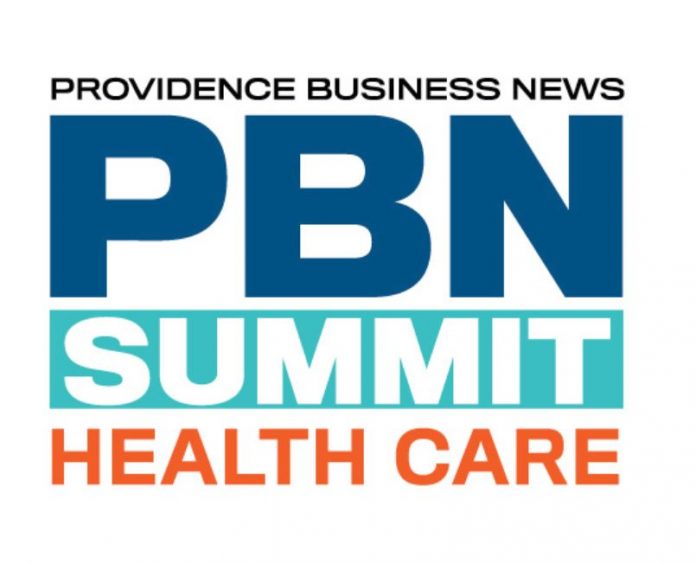
PROVIDENCE — Panelists at the 2018 Spring Providence Business News Health Care Summit at the Providence Marriott Friday morning agreed primary care physicians suffer thinned ranks and low morale, that the loss of the individual mandate uninsured penalty spells trouble for health care access, and that cost savings from reform are overdue.
Joan Kwiatkowski, CEO of CareLink and the PACE Organization of Rhode Island, talked about her experience with her primary care doctor, who noticed a change in her heartbeat from the previous year, revealing an immediate need for open heart surgery.
“As you can see, it was a success story,” she said, as was the primary care system, which quickly identified her condition thanks to an alert doctor and her existing relationship with her, as designed.
Dr. Gus Manocchia of Blue Cross & Blue Shield of Rhode Island noted that with the country’s aging population, there will be a need for another 100,000 doctors in the U.S., 30 percent of which will have to be primary care doctors. In Rhode Island there are more than 700 graduate medical positions, only 90 of which are for primary care. Of those 90 primary care doctors in training, only about 20 percent of them stayed in the state Manocchia said.
Many existing primary care doctors are dissatisfied with their work, he said, which is discouraging prospective medical graduates they come in contact with, leading them away from becoming primary care doctors. Some of the dissatisfaction comes from the high level of regulation, and some is a result of the relative low pay primary care doctors receive compared to specialists, he said.
Dr. Alan Kurose, President and CEO of Coastal Medical, said time is running out for medical plans and systems to demonstrate cost savings from reforms begun in 2012 that were inspired by the Affordable Care Act. Many of those initiatives will have been in place for 10 years in another 3-5 years, he said, and the federal government will be assessing whether the changes resulted in savings at that time.
“We’re not seeing the savings yet that we would hope to see,” Kurose said.
During the second panel of the summit, panelists said the state’s success with the Affordable Care Act, and the law’s function in the country as a whole, is threatened by the loss of the penalty associated with the ACA’s individual mandate.
“I think Rhode Island has been the poster child of the Affordable Care Act,” said David Burnett, acting chief operating officer for Neighborhood Health Plan of Rhode Island, with 96 percent of the population now signed up for health insurance.
Last year, the 4 percent of Rhode Islanders who didn’t buy health insurance paid a $325 fine, totaling $8.6 million.
Without the penalty for those who don’t buy insurance, said R.I. Health Commissioner Marie L. Ganim, fewer younger people will buy into the system, causing costs to rise for everyone. The system works like car insurance, she said, which also requires everyone at risk, in this case all drivers, to buy in.
The conversation turned back to cost as the panel ended, with panelists noting the challenges of health care stemming from the system itself. Al Charbonneau. executive director of the Rhode Island Business Group on Health, noted most of the cost of care, about 82 percent, lies in the cost of medical care itself.
“The medical costs are the medical costs, and unless you control them, you’re not really going to affect premiums,” Ganim said.
This year’s presenting sponsors for the summit included Blue Cross and Blue Shield of Rhode Island, Brown Physicians Inc.
Partner sponsors included Bryant University Executive Development Center, CharterCARE Health Partners, Coastal Medical Inc., CVS Health Corp., Landmark Medical Center, Neighborhood Health Plan of Rhode Island, Tufts Health Plan and United Healthcare.
Rob Borkowski is a PBN staff writer. Email him at Borkowski@PBN.com.












